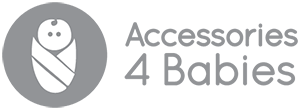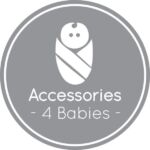Weaning
Weaning your baby onto solid foods
Weaning means gradually introducing a range of solid foods to your baby until they are eating the same food as the rest of your family. As your baby eats more solids, they will want less milk. An important part of weaning is to develop muscles associated with oromotor skills and speech. It also helps with the development of hand to mouth coordination. Spoon or baby led feeding is the gradual introduction of foods, other than milk, into your baby’s diet.
When do I start my child on solid foods?
The introduction of solid food to baby's diet should take place at about 6 months of age. The recommendations for age of weaning are the same for both breastfed and formula fed babies. Baby should not be introduced to solid food before 4 months (17 weeks) and the start of weaning should not be delayed past 6 months (26 weeks) of age as recommended by the HSE. The exact time for introduction will depend on your baby’s signs of readiness. If you decide on baby led weaning your baby needs to be 6 months old and be able to sit in the seated position unaided.
It involves introducing your baby to family food. All babies and young children need energy and nutrients to help them grow and develop. A well planned diet can provide all the nutrients your baby needs.
Introducing solids to your baby before 17 weeks can increase the risk of food intolerance. Your baby’s digestive system is not fully matured and would not be ready before this time. Unless requested to do so by your public health nurse. There is also risk of food intolerance. You also need to ensure you start before 26 weeks. If you wait too late it can lead to fussy eaters, risk of iron intolerance and allergies.

How do I know my baby is ready?
The signs that your baby is ready for solid food include:
- Have good head control.
- Show interest in foods.
- Your baby may look at food eagerly, watches when you eat and chew their hands.
- They are able to sit up and support themselves.
- Start to look for milk feeds less frequently over more than a week.
- Does not seem as satisfied after a milk feed, demands more feeds.
- Your baby can bring their hands to their mouth and are putting things (e.g. toys) into their mouth and has good hand to mouth co-ordination.
Positioning
Your baby should be in an upright position. A high chair, travel chair or booster seat is best, where your baby can look straight ahead when feeding.
Tips for weaning
- Choose a time when your baby is relaxed and fully alert and not too hungry.
- Be prepared for a mess.
- Thoroughly clean your baby's spoon and My Feeding Pal Plate before use.
- Start weaning on to solid foods once a day.
- Introduce the spoon slowly to your baby’s mouth so they can suck the food from the spoon.
- Gradually add weaning foods to other meal times.
- Start with 1 teaspoon of food per meal.
- Gradually increase the amount.
- Introduce new foods one at a time and allow your baby to get used to the taste.
- Once your baby is managing to take food from the spoon, spoon feeds can be spaced out between bottle feeds
- Offer the solid food first and then follow with breast or formula milk.
- Never leave your baby alone while he or she is eating, in case of choking.
- Introduce one new food at a time, leaving one to two days between each new food to see if your baby has a reaction or intolerance to a food.
- Offer small amounts of spoon feeds, e.g. 2-3 baby spoons, to start with, but allow your baby to take more as they demand.
- Once your baby is managing to take food from the spoon, spoon feeds can be spaced out between bottle feeds.
- Always give from a spoon, do not give food in a bottle.
Foods to avoid during the first year
- Unpasteurised or mould ripened cheese: although these can be eaten if well cooked, cheeses should be pasteurized.
- Salt: do not add salt to any foods. Avoid foods containing large amounts of salt such as stock cubes, soups and sauces.
- Added sugar: avoid adding sugar and using foods or drinks with added sugar
- Honey: avoid honey until your baby is 1 year old.
- Nuts: do not give whole nuts to your baby until they are at least 5 years old due to the risk of choking. Smooth nut spreads are safe.
What liquid can I use to soften and prepare my child's solid food?
Use:
- Breast milk or formula milk
- Water or stock from cooked vegetables
- Cooled boiled water
Do not use:
- Gravy
- Stock cubes
- Jars or packets of sauce, as these contain a lot of salt
Stages of Weaning
- The weaning process takes place in Three Stages, starting with the first spoon feeds when the infant is 4 - 6 months old and finishing at 12 months.
- For more information and advice about weaning, ask your Public Health Nurse, Paediatric Dietition or Doctor.
- If your baby is Preterm make sure to consult your Public Health Nurse.

Stockists





